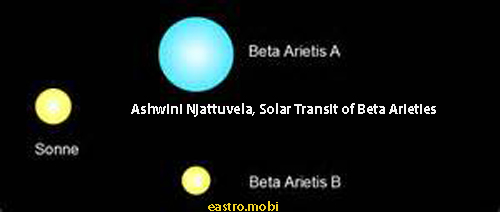In the above diagram,
m is the Sheegra Anomaly
and the angle EJS is the Sheegra Phalam
where E = Earth, S = Sun and J = Jupiter
In order to get the geocentric longitude, the longitude of the Sun is deducted from the Ecliptic longitude and then we get the Sheegra Kendra, the angle between the planet and the Earth Sun plane.
Ecliptic longitude – Long Sun = Sheegra Kendra
Arka Sphutnoniham Kheda Manda Sphutamihodhitham
Sheegra Phalam is the angle EJS ( Earth, Jupiter, Sun ) and this Sheegra Phalam is deducted to get the true, geocentric longitude. ( Added if Sheegra Anomaly > 180 and deducted if Sheegra Anomaly < 180 ) Like Kepler, the Indian astronomers may not have said that all planets move fastest at perihelion but this principle was known to them as they called perihelion Sheegrochha. Sheegra in Sanskrit means fast. Similarly they called Aphelion Mandochcha, manda meaning slow, and it implies that all planets move slowly at Aphelion !


